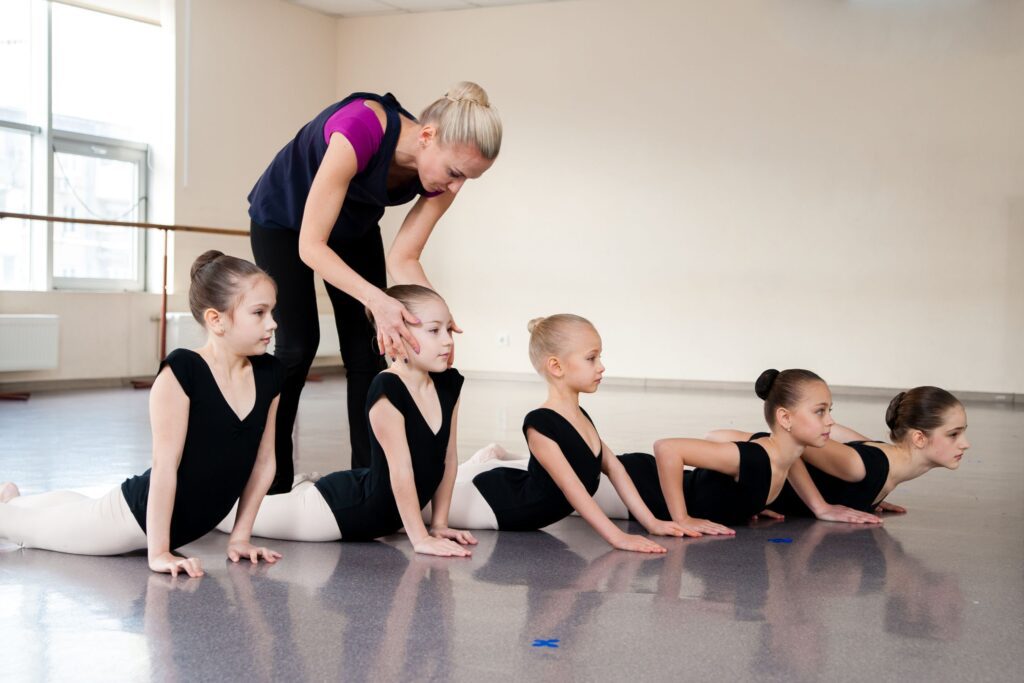Dance is not just a form of artistic expression but a powerful tool that can significantly influence a child’s development. Enroling children in dance classes can teach them valuable lessons in discipline, focus, teamwork, and other life skills. Explores how dance teaches children essential life skills and the discipline to thrive on and off the stage.
The Importance of Discipline in Dance
Structure and Routine
One of the most significant aspects of dance is the structure it provides. Dance classes typically follow a set schedule and routine, which helps children develop a sense of discipline. Arriving on time for class, following the instructor’s directions, and adhering to the class schedule all contribute to a child’s ability to manage their time and responsibilities effectively. This structured environment fosters good habits that can extend into other areas of their lives, such as school and home.
Commitment to Practice
Dance requires consistent practice to master techniques and improve skills. Children learn that regular rehearsal is essential for progress. This commitment teaches them the importance of dedication and perseverance as they work towards specific goals, such as mastering a difficult routine or preparing for a performance. The understanding that hard work leads to improvement instills a strong work ethic that can benefit all areas of life.
Setting Goals
Setting goals is crucial for success in dance. Children often set personal goals, such as learning a new step or achieving a particular level of proficiency in their dancing. These goals encourage them to stay motivated and focused, teaching them the importance of setting and achieving targets. This skill is transferable to academics and other activities, where goal-setting can lead to better outcomes.
Life Skills Developed Through Dance
Teamwork and Collaboration
Many dance styles, such as ballet, jazz, and hip-hop, involve working in groups or pairs. Children learn to collaborate with their peers, which enhances their ability to work as part of a team. They discover the importance of communication, listening, and supporting one another. These teamwork skills are vital for success in school projects, sports teams, and future workplaces.
Confidence and Self-Esteem
Performing in front of an audience can be a daunting experience for many children. However, participating in dance performances helps them build confidence. Each time they step on stage, they face their fears, learn to manage their nerves, and develop a sense of accomplishment. This boost in self-esteem translates into other areas of their lives, enabling them to approach challenges positively.
Emotional Expression and Regulation
Dance provides a unique outlet for children to express their emotions. Through movement, they can communicate feelings they may struggle to articulate verbally. Expressing emotions through dance fosters emotional intelligence, helping children understand and regulate their feelings. This skill is essential for developing healthy relationships and coping mechanisms as they grow.
Creativity and Imagination
Dance encourages children to think creatively and explore their imaginations. They can express their ideas and emotions freely in improvisation classes or choreography sessions. This creative exploration nurtures problem-solving skills and innovative thinking, valuable qualities in all aspects of life, from academics to personal relationships.
Social Skills Gained Through Dance
Building Friendships
Dance classes create a sense of community among students. Children often form friendships with their peers, fostering a sense of belonging. These friendships can be supportive and encouraging, providing a safe space for children to express themselves. The social interactions gained through dance help develop social skills, making it easier for children to make friends and interact with others in various settings.
Learning Respect and Discipline
Dance teaches respect. Not only for teachers and fellow dancers but also for the art form itself. Children learn to listen to their instructors, respect their fellow dancers, and appreciate the effort that goes into creating a performance. This respect for others fosters discipline and empathy, essential traits for forming healthy relationships throughout life.
The Role of Parents and Guardians
Encouragement and Support
Parents and guardians play a crucial role in their child’s dance journey. Encouraging their participation and supporting their endeavors helps build resilience and confidence. Attending performances and celebrating achievements reinforces the value of dedication and hard work, motivating children to continue pursuing their passion for dance.
Creating a Balanced Schedule
While dance is an excellent way to develop discipline and life skills, it’s essential to maintain a balanced schedule. Parents should ensure their children have enough time for schoolwork, family activities, and relaxation. A well-rounded schedule teaches children the importance of balance in life, helping them prioritise their commitments effectively.
Conclusion
Dance is a multifaceted discipline beyond mere movement. It is a powerful educational tool that equips children with vital life skills. From teaching discipline and commitment to fostering creativity, confidence, and teamwork, dance offers invaluable lessons that can benefit children throughout their lives.
Kew School of Dance is dedicated to nurturing young dancers in a supportive environment. Enroling your child in our dance classes allows them to learn essential skills while having fun. Contact us at 03 9123 8458 / 0410 311 008 to learn more about our programs and how we can be part of your child’s dance journey.








